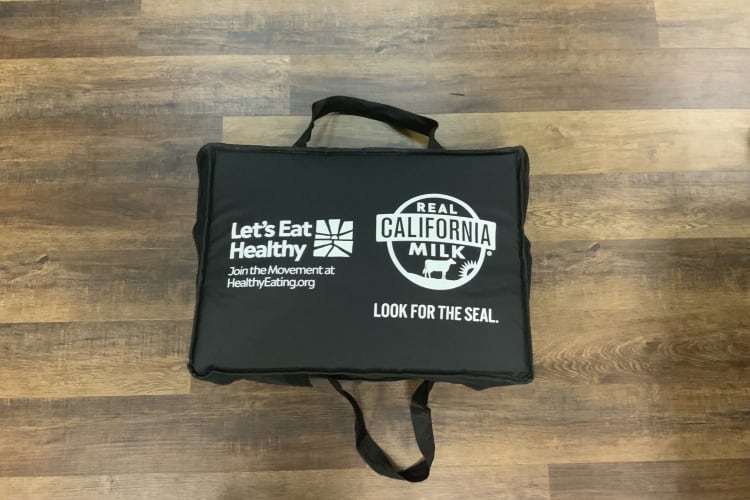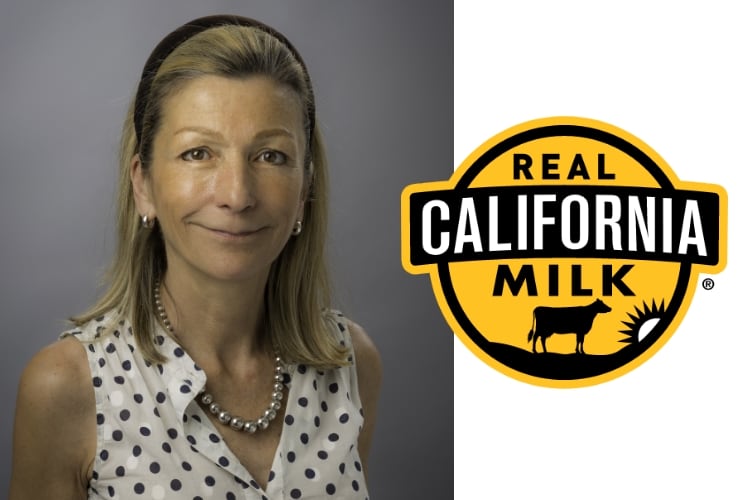When the pandemic forced California schools to close their doors, many schools switched to a drive-thru service model to continue to provide meal service to students and families in their community. Drive-thru meal service is continuing, despite schools opening back up, and as the weather warms, a growing concern shared by many school foodservice professionals center around challenges keeping milk cold.
To address this, CMAB created and sourced custom, portable cooler-bags, which are insulated and able to hold up to two crates of milk. The cooler bags can be easily moved and stored, making them suitable for in-classroom, drive-thru and outdoor meal service. Beyond the pandemic, the cooler bags will also be able to support summer meals. The cooler bags are being distributed to schools in need.
“School meals are an essential resource to promote healthy growth and development and support academic achievement. With the disruption of Covid, vulnerable students have faced limitations on access to healthy foods,” said Mike Gallagher, business and market development consultant for the CMAB.
“By supplying California schools with cooler bags to help solve the problem of keeping milk cold, we can help ensure all children are able to access milk with their school meals.”
Three California processors took part in the test – Producers Dairy Foods, Crystal Creamery and Hollandia Dairy – to help fund and distribute approximately 5,000 cooler bags for schools in the central and southern part of the state. Distribution by these processors will continue until supplies are exhausted in the districts of the pilot program.


